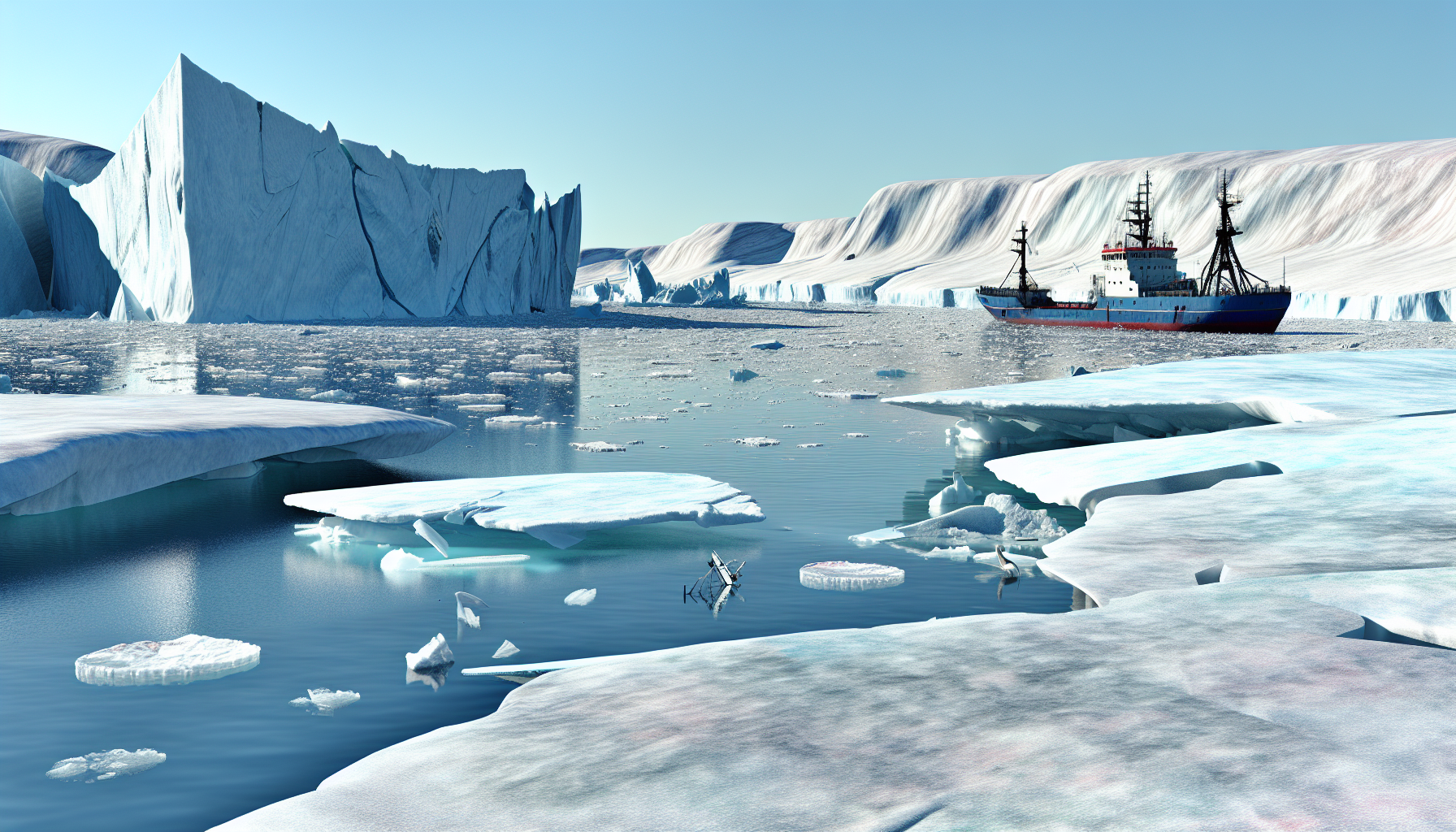In the hushed expanses of the far north, the ice has ceased its whispering. The once constant creaks, groans, and ethereal symphonies have fallen silent, leaving behind an eerie stillness in the Arctic reaches. This silence is a profound testament to a world transformed by relentless warming—a planet that has stopped shivering, no longer dusting its surface with the abundant snows of yesteryear.
The Arctic, a sentinel of climatic shifts, has long been singing the forewarnings through its ice. Scientists and indigenous peoples alike poignantly recall the melodic ice vibrations—a natural music born from the interplay of wind, temperature, and the complex structures within. These sounds were not mere background noise; they were the heartbeat of a dynamic ecosystem.
However, humanity’s vast environmental negligence has quieted this pulse. We have entered an age where the frozen choirs have disbanded, and the Arctic’s auditory landscape is rendered disturbingly mute. Aboard the research vessel Polar Endeavor, scientists document the unsettling quietude, their sophisticated instruments no longer picking up the frequencies of ice movement. The crew, once accustomed to the ice’s serenade, now works in a silence punctuated only by the bubbling whispers of melting glaciers.
In this oblivion of sound, the consequences are not just auditory but also ecological. Marine life that once thrived in harmony with the ice songs finds itself in a changed world. The silence signals ecological upheaval—with species loss, migratory disruption, and collapsed food webs. As we traverse through this mute expanse, we cannot help but reflect on the metaphor it sets for our own futures. The silence of the ice foretells a larger quiet looming ahead—the potential silencing of biodiversity as we know it.
The loss doesn’t end with ecology; it is a cultural bereavement as well. Indigenous communities that navigated life’s complexities through the ice’s cues are now stranded in a world stripped of its acoustic markers. Narratives that have been passed down for generations—where the ice’s music was interwoven with the wisdom of elders—now face a bleak reality. Our interviews with the elders are a somber chronicle of traditions at risk of dissolving faster than the ice itself.
In an era where virtual connectivity is at its peak, we find ourselves disconnected from the true symphony of nature. The Arctic’s muteness is an unwelcomed metaphor for our times—a reminder that in our pursuit of progress, we’ve muted the planetary concert that once composed life’s rich background score. As we consider this silence, it prompts a profound reckoning with our values, our actions, and the inheritance we leave for those who will tread a quieter, less vibrant world.
In this deafening stillness, we are forced to listen—to confront the realities of our time and the impact of our presence. The Polar Endeavor’s logs may be the last census of a dissolving soundscape, a testament of when the ice stopped singing. As the ship cuts through the still waters, leaving ripples in its wake, one can’t help but wonder if those ripples are the last echoes of a vanishing world—a world where the ice no longer tells its tales.
